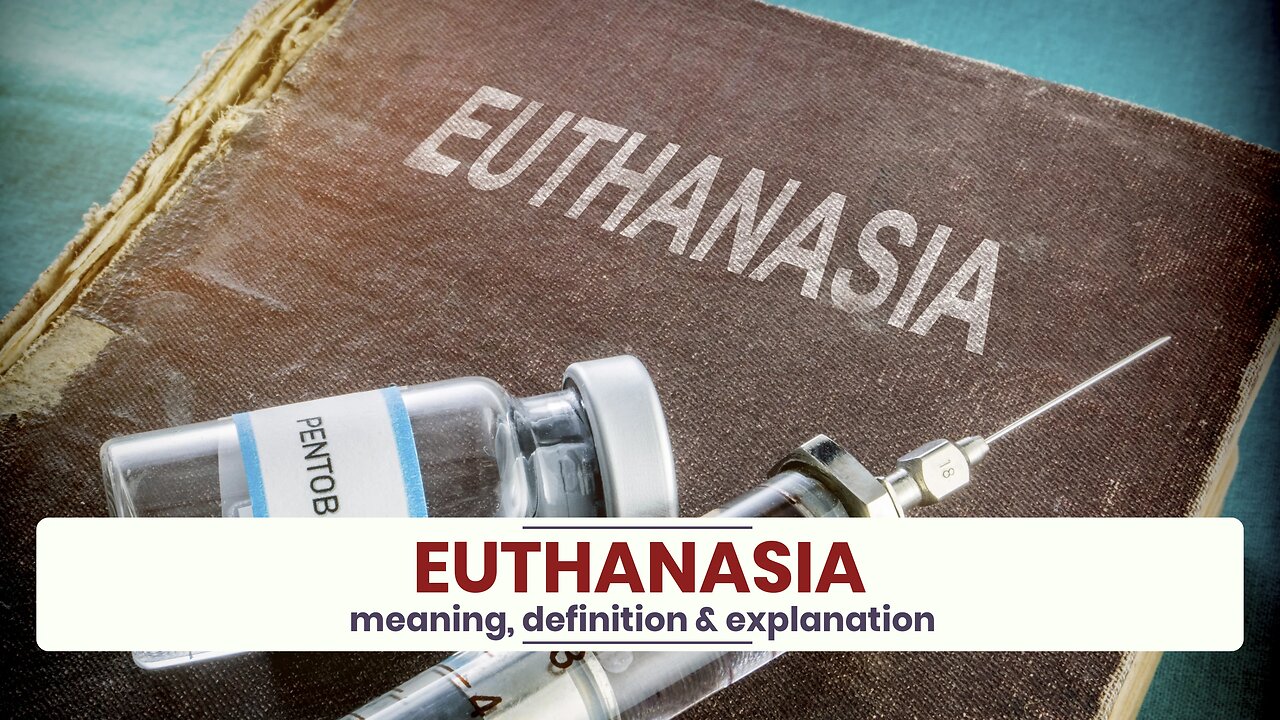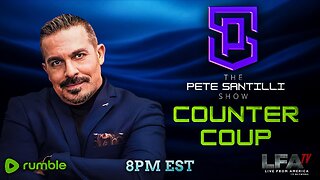Premium Only Content

What is EUTHANASIA?
✪✪✪✪✪
http://www.theaudiopedia.com
✪✪✪✪✪
Euthanasia is the practice of intentionally ending life to eliminate pain and suffering.
Different countries have different euthanasia laws. The British House of Lords select committee on medical ethics defines euthanasia as "a deliberate intervention undertaken with the express intention of ending a life to relieve intractable suffering". In the Netherlands and Belgium, euthanasia is understood as "termination of life by a doctor at the request of a patient". The Dutch law, however, does not use the term 'euthanasia' but includes the concept under the broader definition of "assisted suicide and termination of life on request".
Euthanasia is categorised in different ways, which include voluntary, non-voluntary, and involuntary. Voluntary euthanasia is when a person wishes to have their life ended and is legal in a growing number of countries. Non-voluntary euthanasia occurs when a patient's consent is unavailable and is legal in some countries under certain limited conditions, in both active and passive forms. Involuntary euthanasia, which is done without asking for consent or against the patient's will, is illegal in all countries and is usually considered murder.
As of 2006, euthanasia had become the most active area of research in bioethics. In some countries, divisive public controversy occurs over the moral, ethical, and legal issues associated with euthanasia. Passive euthanasia (known as "pulling the plug") is legal under some circumstances in many countries. Active euthanasia, however, is legal or de facto legal in only a handful of countries (for example, Belgium, Canada, and Switzerland), which limit it to specific circumstances and require the approval of counsellors, doctors, or other specialists. In some countries—such as Nigeria, Saudi Arabia, and Pakistan—support for active euthanasia is almost nonexistent.
-
 1:26
1:26
The Audiopedia
1 year agoWhat is MOTTO?
50 -
 LIVE
LIVE
TimcastIRL
1 hour agoTrump FBI Raids John Bolton Amid Classified Docs Investigation | Timcast IRL
25,362 watching -
 LIVE
LIVE
TheSaltyCracker
1 hour agoFinally Someone Gets Raided ReEEeStream 8-22-25
13,431 watching -
 LIVE
LIVE
The Mel K Show
3 hours agoMel K w/ Ian Trottier & John Donovan | High Stakes Treason: How John Brennan Compromised American Security for Millions | 8-22-25
815 watching -
 LIVE
LIVE
SpartakusLIVE
3 hours agoWARZONE NUKE IS BACK?! || Solo Challenge CHAMPION to start, duos w/ the Dawg later
1,673 watching -
 LIVE
LIVE
SynthTrax & DJ Cheezus Livestreams
10 hours agoFriday Night Synthwave 80s 90s Electronica and more DJ MIX Livestream OUTSIDERZ Edition
113 watching -
 LIVE
LIVE
megimu32
2 hours agoOFF THE SUBJECT: FAFO Friday! Shure GIVEAWAY!
71 watching -
 LIVE
LIVE
The Amber May Show
1 hour agoChristian Music Night with Amber May, Wendy Wild & Ace
169 watching -
 LIVE
LIVE
LFA TV
17 hours agoLFA TV ALL DAY STREAM - FRIDAY 8/22/25
816 watching -
 LIVE
LIVE
Amish Zaku
8 hours agoRumble Spartans August Event- Classic Halo Multiplayer
41 watching